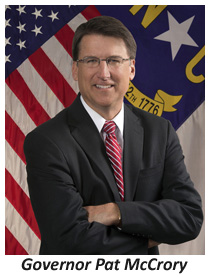 Regulators are getting serious in North Carolina about dealing with companies that shirk their responsibility to carry workers’ compensation coverage on those who toil on their jobsites. So far, the state has issued $1 million in fines with more to come. The News and Observer in Raleigh took an in-depth look at two problems: Lack of workers' comp as well as worker misclassification.
Regulators are getting serious in North Carolina about dealing with companies that shirk their responsibility to carry workers’ compensation coverage on those who toil on their jobsites. So far, the state has issued $1 million in fines with more to come. The News and Observer in Raleigh took an in-depth look at two problems: Lack of workers' comp as well as worker misclassification.
From the report:
“The goal is to head it off and get to compliance before there’s an injury,” said Andrew Heath, who has overseen the commission’s work since Gov. Pat McCrory appointed him chairman in early 2013. Heath will soon leave the commission to be McCrory’s budget director; a replacement at the commission has not yet been named.
The News & Observer reported in April 2012 that as many as 30,000 employers in North Carolina required to purchase workers’ compensation had not. The following year, the state auditor reported the commission had done nothing to intervene as more than 11,000 businesses in 2012 canceled policies or let them lapse.
In the last fiscal year, the commission investigated nearly 2,000 cases involving potential lack of coverage, and those efforts brought 800 companies into compliance. In that same year, the commission ruled that 71 workers were injured while working for employers without proper insurance.
While punishing companies that don't guarantee coverage for injured workers is a positive step, the state agency has yet to take action against companies that misclassify their workers. Misclassification happens when companies intentionally pretend their workers are independent subcontractors when they are, by law, supposed to be classified as employees and compensated as such.
North Carolina’s Republican governor has made moves to step up enforcement:
Gov. McCrory, however, has ordered the commission to take a new role in stopping misclassification. In mid-December, the governor issued an executive order placing the Industrial Commission in charge of coordinating how various state agencies respond to information about businesses that might be cheating. He charged each agency to enforce its rules and issue appropriate sanctions when they find a business misclassifying workers.
McCrory acted after the legislature failed to pass legislation that would have established a team of investigators at the state Department of Revenue to go after companies misclassifying workers.
The full report from the News and Observer can be found here and it is well worth your time.


